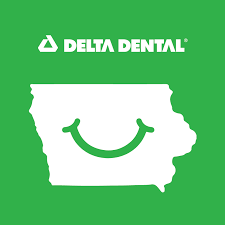BERKO: Insurance premium rise a result of bad economy

Dear Mr. Berko:
We had to give my wonderful folks $420 so they could pay the increase in their homeowner’s insurance premium. These insurance companies are greedy pigs. Please tell me how they’re allowed to increase my parents’ premiums by 32 percent. A few years ago, my folks (who are in their mid-70s) got about $620 a month from their CDs. Today those CDs pay $100 a month, and it’s painful to watch my parents make the best of things. Last week, when Dad told me he got a part-time job at a hardware store, I cried. This beautiful man was drafted, spent 23 months in Vietnam and got two Purple Hearts and a Bronze Star for his service. When he came home, he was booed. For 35 years, Dad worked himself to the bone, and he and Mom raised three of us to be good citizens. Now his country is booing him again. Why have insurance rates gone up so high? Why has the government done nothing to help my dad? I’ve lost faith.
P.N., Bethlehem, Pa.
Dear P.N.:
My answer won’t solve the problem, but perhaps your folks should consider a reverse annuity mortgage, which could pay them $500, $600 or more per month. And, perhaps, if they could invade 5 percent of their principal annually to help them cope, assuming zero interest on $156,000, your folks could take $7,500 every year for 20 years before their savings fall to zero.
Among the Federal Reserve’s saddest failures are the Three Q’s, or the three rounds of quantitative easing: QE1, QE2 and QE3. Someone calculated that if the collective sum of the Three Q’s were represented by $100 bills, the volume of that currency would fill Yankee Stadium to the bleachers. Sadly, the benefits would hardly fill a press box.
The Fed’s second silly failure was diddling with interest rates, keeping them near zero, to stimulate consumer borrowing. Even my son’s two schnauzers, Sigmund and Freud, know that people must have jobs to qualify for bank loans. Perhaps next the Fed will require banks to issue glow-in-the-dark checkbooks so Americans can spend money at night. Low rates have not helped the real estate market, shortened unemployment lines, stemmed the flow of Chapter 11s or encouraged consumer spending.
Many economists warned the administration that lowering rates would not jump-start the economy and told us that premiums for home, health, auto and casualty insurance policies would increase dramatically. That was an easy call. Insurers keep hundreds of billions of dollars in short-term securities to help pay projected claims. A few years ago, those multiple billions earned 3 to 6 percent, and that income allowed insurers to meet claims. Now those investments are earning bupkis, so insurers had to raise premiums to maintain reserves.
Yes, the insurance companies are “greedy pigs,” but if reserves fall below legal mandates, they will be forbidden to do business in your state. Your folks are a casualty of low rates, which have also caused a significant decline in consumer spending among retirees. Most retirees depend upon their CD earnings, but that income has vaporized. Some economists believe that reduced retiree spending has lowered our gross domestic product by almost 2 percent.
Please address your financial questions to Malcolm Berko, P.O. Box 1416, Boca Raton, Fla. 33429 or email him at malber@adelphia.net. ©2011 Creators.com








